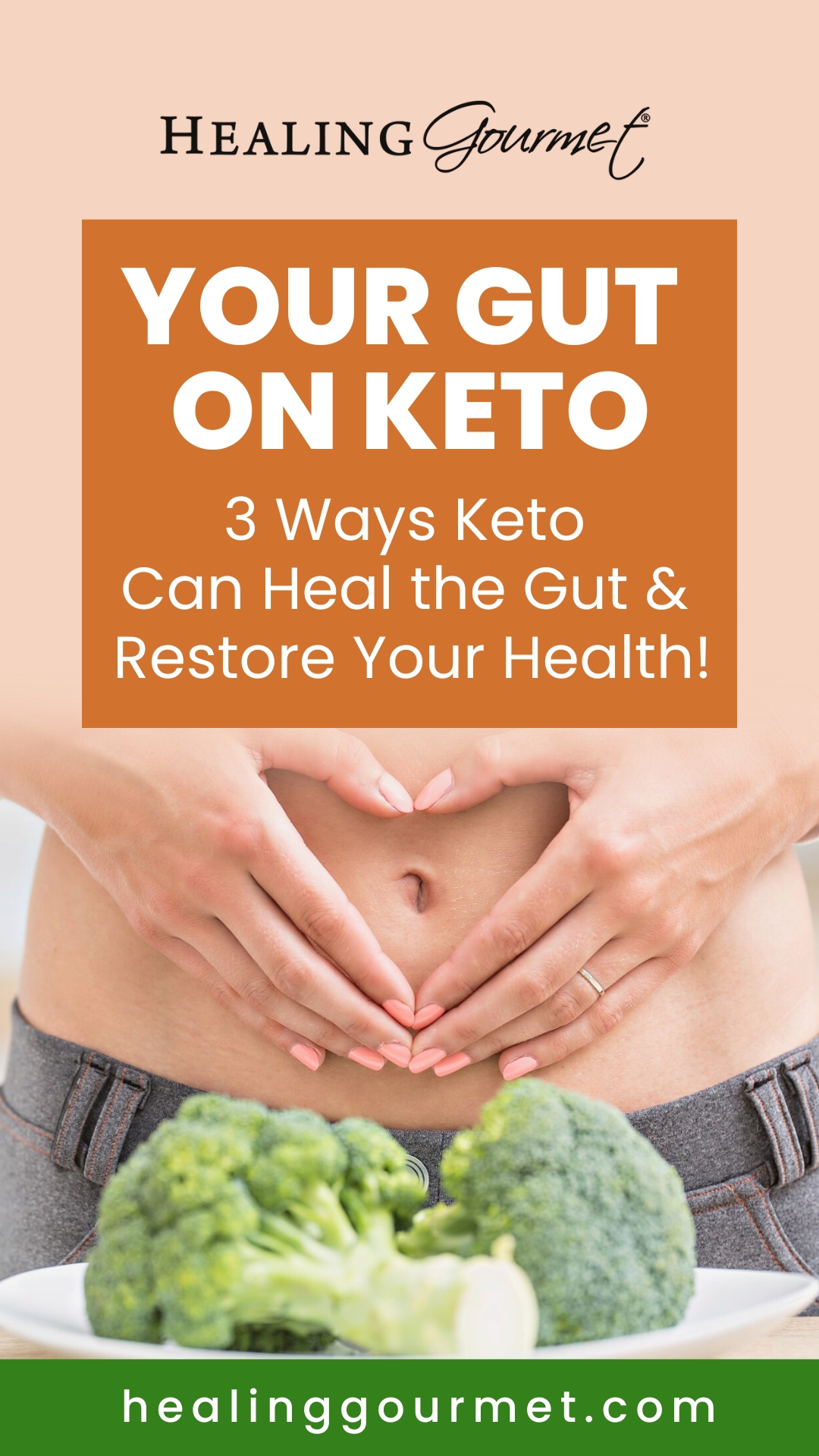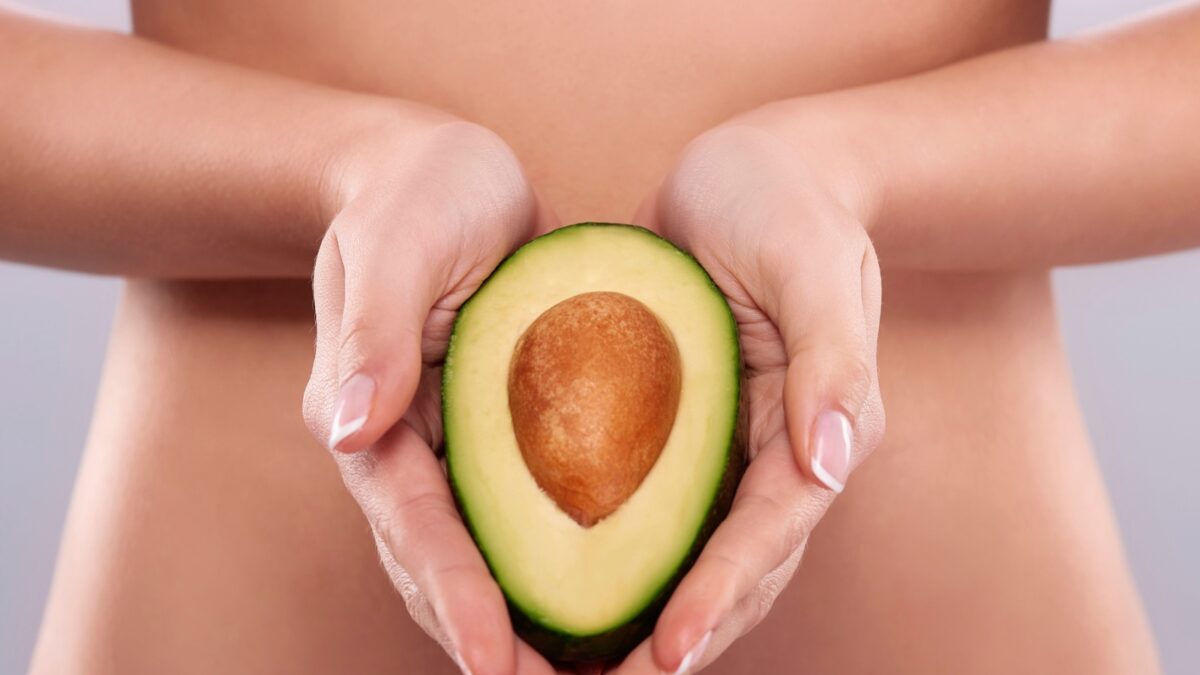Can You Heal Your Gut with the Keto Diet?
The keto diet is often hailed for its ability to help you shed excess fat and improve blood sugar control. These are critical markers for health and offer a variety of significant benefits. But research suggests that the benefits of keto go much deeper…
It turns out that the most profound benefits of keto may be the result of its impact on the health of your gut. The keto diet plays a crucial role in remodeling your microbiome and shaping the population of trillions of microorganisms that live in your gut. It may even help to restore and regenerate your gut lining!
The Keto Diet and Gut Health Benefits
Changing the microbiome might even be the PRIMARY mechanism by which the keto diet works its healing “magic”. We will discuss the mechanisms in a moment, but first, consider some of the research on how keto can affect chronic and debilitating conditions by improving gut health:
- Parkinson’s Disease: When subjects with Parkinson’s were treated with strong antibiotics to eliminate their gut bacteria – their neurological symptoms went away. When the subjects were recolonized with gut bacteria, the symptoms returned. These results led the researchers to state, “Alterations in the human microbiome represent a risk factor for Parkinson’s Disease.”
- Alzheimer’s Disease: The keto diet was found to tamp down on microbes in the gut linked to dementia. “Our results are indisputable: Certain bacterial products of the intestinal microbiota are correlated with the quantity of amyloid plaques in the brain.”
- Multiple Sclerosis: This progressive neurological disease may be stopped in some cases by reducing harmful microbes in the gut. “The perturbation of the microbiome in MS is not inherent and inevitable, but can be definitively corrected with diet, supplementation and other means… The ketogenic diet for six months completely restored the microbial biofermentation mass and is an interesting interventional tool.”
- Irritable Bowel Syndrome: Research published in The American Journal of Gastroenterology found that 84 percent of people suffering from irritable bowel syndrome (IBS) also suffer from harmful overgrowth of a specific type of gut bacteria.
- Rheumatoid Arthritis: Proteus bacteria have an amino acid sequence that resembles type-6 collagen. This is why people with a genetic predisposition, who have been infected with Proteus, often develop rheumatoid arthritis – a debilitating condition where the immune system attacks the joints and other parts of the body where collagen is present.
- Depression & Anxiety: The link between the microbiome and mood is so strong, researchers in Belgium found that levels of bacteria-related compounds could be used to diagnose major depression with an accuracy over 90%!
Many of the symptoms in these all-too-common conditions are experienced because of “molecular mimicry”, where the microbe (or a substance it produces) “looks” dangerous to the immune system and is attacked, causing a wide range of effects.
Researchers at University of California wanted to get a better understanding of how the ketogenic diet could impact gut organisms… and the impact this could have on other health factors.
In a four-week study, 17 overweight or obese men consumed either a “standard” diet (consisting of 50 percent carbs, 15 percent protein and 35 percent fat) or a ketogenic diet (comprising 5 percent carbs, 15 percent protein and 80 percent fat). After four weeks, the two groups switched diets.
The men on the keto diet experienced profound shifts in their microbiome – most notably, a drastic reduction in amount of Bifidobacterium.
You’ve probably heard of Bifidobacterium or bifidus. It is considered a primary “healthy strain” of gut bugs. Prebiotic fiber, yogurt and other fermented foods boost this strain. On the other hand, it also happens to be a strain that is absent in the healthy, long-living Hadza people.
Is it possible that “healthy and beneficial” bifidus could be increasing inflammation in the gut… instead of reducing it, as it is commonly thought to do?
Does Less Bifidus = Less Inflammation?
In the study referenced above, the researchers discovered that patients with more Bifidobacterium in their gut had higher activity of a pro-inflammatory immune cell called TH-17.
Th17 cells are involved in the immune response to certain types of infection, and have been linked to autoimmune disease. High levels of Th17 cells are also associated with inflammation in the intestines and other tissues.
Ketones act as a “natural” anti-microbial in the gut. The keto diet helps to tamp down on the populations of Bifidobacterium that can encourage those inflammatory immune cells.
“This study provides initial evidence that a KD and ketone bodies could be used to reduce inflammation in the gut, which would be beneficial for patients with inflammatory bowel diseases such as colitis and Crohn’s disease.”
But this is not the only way ketones may help the gut…
Keto Enhances Regeneration of Intestinal Stem Cells
New research from MIT indicates ketones may be a “Fountain of Youth” for a damaged intestinal lining, commonly referred to as “leaky gut” or “intestinal permeability”.
Ketones achieve this by stimulating the “Notch signaling pathway” – a system that plays a role in growth, regeneration and maintenance of tissues and organs.
MIT researchers found that by promoting the maintenance of a pool of adult stem cells in the intestine, the keto diet may have profound healing benefits for those with gastrointestinal issues.
Another study of mice fed a keto, showed that these mice had significantly increased notch signaling pathways in the gut, leading to improved gut barrier function.
Try the Keto Diet to Recover Your Gut Health
All too often, high-carb and high-fiber diets are recommended for those with digestive issues. And yet, these are the very foods causing the problem!
If you suffer from digestive, autoimmune, or brain and mood issues, the ketogenic diet may be an effective tool to restore the health of your microbiome and the integrity of your gut lining – two huge steps in overcoming chronic illness.
Also consider:
- Other digestive offenders in your diet, like fermentable foods (FODMAPs).
- Using a food journal to track your symptoms
- Making your meats easier to digest and absorb by pressure cooking (ie – Instant Pot).
- Including bone broth in your daily diet or even a bone-broth fast
Here are a few of my favorite gut-healing ketogenic foods:
- Roasted Bone Marrow: Simply salt and roast at 400 F for 15-20 minutes.
- Pressure-Cooked Pot Roast: Use grass-fed chuck roast or any large cut. Here’s the recipe for my pressure cooker pot roast. Be sure to eat it with the tallow!
- Mixed Bone Broth: Use marrow bones along with chicken feet and necks for highest gelatin content.
Sourcing grass-fed bones and simmering them for 48 hours to make bone broth can be time-consuming and impractical. If you decide to save yourself some time and purchase bone broth, our friends at Paleovalley offer 100% Grass-Fed Bone Broth Protein to provide all the benefits of collagen-rich bone broth without the hassle. You can easily add this protein to your organic smoothies, stir it into your coffee, or mix it into your favorite keto and paleo recipes.
So, if you’re considering the keto diet, think beyond weight loss and blood sugar control. The potential benefits for your gut and microbiome may be just as important – if not more so – in the long run!





Leave a Reply